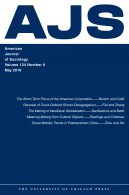
Abstract
The article combines two strands of political process theory (opportunity and threat) in a changing authoritarian context. Through the use of protest event, archival, and secondary sources on El Salvador between 1962 and 1981, the study examines the outbreak and forms of two protest waves that are generated by the temporal sequencing of political opportunity and threat environments. The specific opportunities of institutional access and competitive elections motivate regime challengers to form durable civic organizations. This newly available organizational infrastructure can be used to sustain reformist contention in the near term as well as be radicalized to launch more disruptive and violent protest campaigns when opportunities recede and the political environment transitions to one characterized by mounting threats (state-attributed economic problems, erosion of rights, and state repression).
